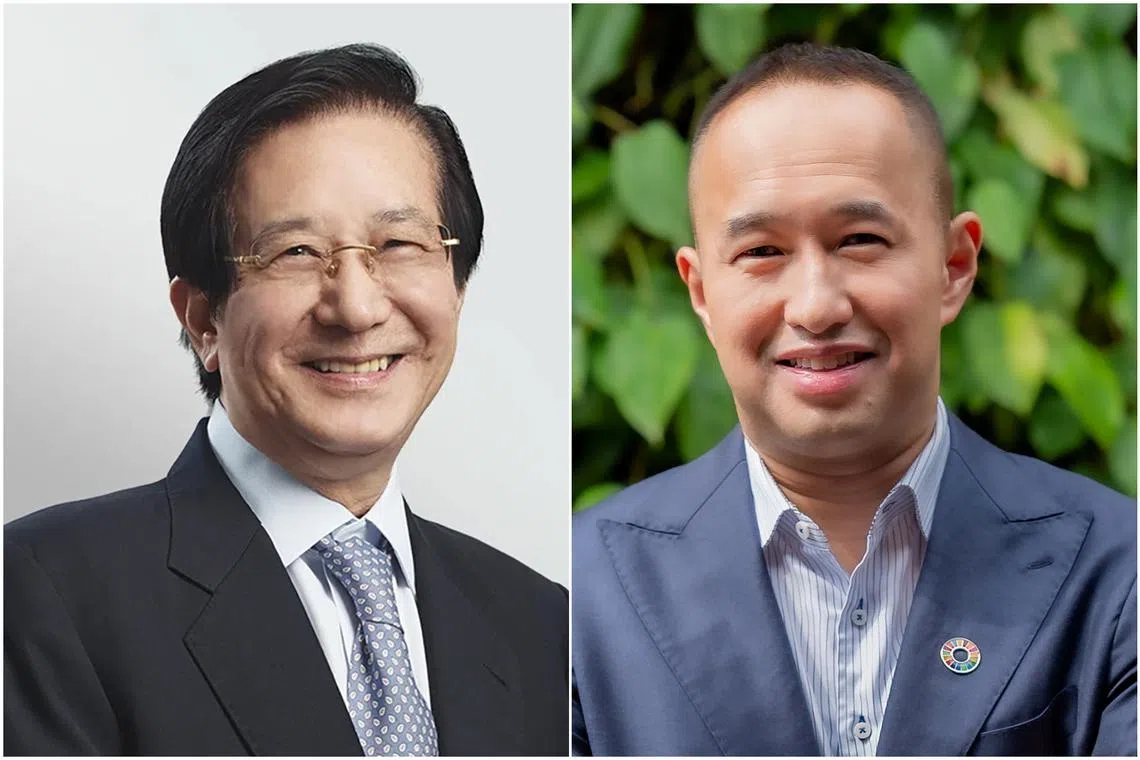CDL CEO should focus on making back $1.9 billion in losses, says CDL director Philip Yeo
Sign up now: Get ST's newsletters delivered to your inbox

Mr Philip Yeo (left) said CDL group CEO Sherman Kwek "should work with the whole board to make money for all CDL shareholders".
PHOTOS: CDL, BT FILE
SINGAPORE - A Feb 27 statement by City Developments Limited (CDL) group chief executive Sherman Kwek alleging that the underlying reason for the public fallout at the company was his father Kwek Leng Beng’s adviser,
The matter is that Mr Sherman Kwek and directors acting with him bypassed the nomination committee, appointed two independent directors
Mr Sherman Kwek’s Feb 27 statement also asserted that neither he nor the majority of directors had attempted to oust the chairman, rejecting the older Kwek’s claim of an “attempted coup”
It also alleged that Dr Wu had been interfering in matters going well beyond her scope, which troubled him and the majority directors.
Mr Yeo, former executive chairman of the Economic Development Board, sides with executive chairman Kwek Leng Beng in an emerging tussle for control of CDL.
The dispute surfaced on Feb 26, when Mr Kwek Leng Beng took his son Sherman and several other board directors to court over what he said was an “attempted coup” to allegedly consolidate control of CDL’s board.
Mr Yeo said in his statement: “The CDL CEO should be focused on making back the $1.9 billion of shareholders’ losses
CDL, under Mr Sherman Kwek’s watch, acquired Chinese property developer Sincere Property in May 2019
That investment was written off one year later, resulting in a $1.78 billion reduction in CDL’s assets on the balance sheet, and leading to a net loss of $1.9 billion in 2020.

CDL executive chairman Kwek Leng Beng with his adviser, Dr Catherine Wu. Mr Kwek’s son, Sherman, cites her as the reason for the public fallout of the company.
PHOTO: GEEKCON
Mr Yeo added: “Instead, he (Sherman Kwek) seems more concerned about grievances, mobilising a group of independent directors to remove an adviser to the CDL hospitality business, which has actually seen profit improvements for the past few years since Covid-19.
“The CDL CEO should work with the whole board to make money for all CDL shareholders.”
In a separate statement sent to the media on Feb 28, Mr Kwek Leng Beng rejected his son Sherman’s explanation that there was no attempt to oust the former as chairman.
“Sherman stated there was no attempt to oust me. This misses the point. Protecting good governance, including the office of the executive chairman, and not me as an individual, is critical. Stripping away any meaningful authority of the executive chairman is a coup.”
The older Kwek added: “The bottom line is that following the court hearing, the two additional independent directors cannot act and the changes to the board committees and the management of the relevant CDL subsidiaries are frozen, pending any further court order.
“It is important to highlight that Sherman and the directors acting with him provided those undertakings only because they were sued.”
Mr Kwek Leng Beng said Mr Sherman Kwek’s moves to bypass the nomination committee on two occasions are in breach of Singapore Exchange listing rules and the Republic’s Code of Corporate Governance.
“This is why we had to make the court application. It was necessary to protect the interests of CDL and its shareholders during this period of significant turmoil.”
He added: “Any real or perceived difference of opinion within the board, regarding external advisers or otherwise, should be resolved within the appropriate corporate governance framework, not by way of a board coup or directors’ resolutions in writing.”


